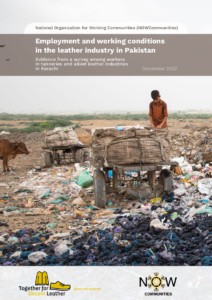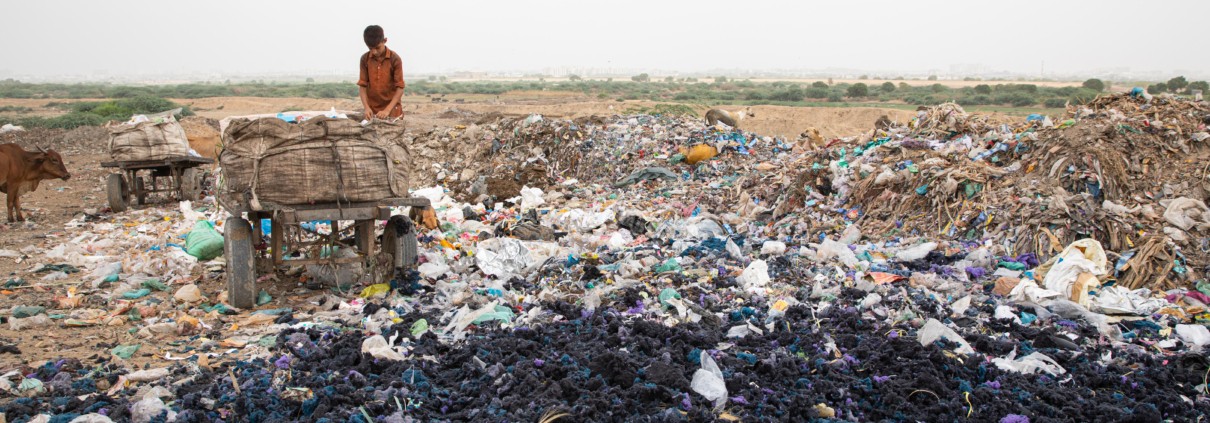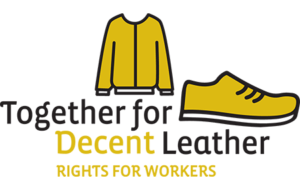Exploitative working conditions mark Pakistan’s leather industry
Work in Pakistan’s leather industry is precarious and exploitative, with little accountability on the part of the government, tanneries and factories, even though Pakistan is a significant exporter of leather goods to European and North American markets. This is the main conclusion of research by the Karachi-based NGO NOW Communities. Over 150 workers were interviewed in the little-researched Pakistan leather sector. Many leather workers, mainly illiterate or poorly educated men, are afraid to speak about their work and living conditions. NOW Communities focused on building trusting relations with workers, and on offering worker rights training.
No running water, low wages
The workforce in the Pakistan leather sector comprises mainly men from low-income extended family households that lack running water and other basic services. Most interviewed men had spent all or most of their working lives in the leather industry, yet few had permanent employment, and many had no documentation regarding their employment. The basic wages are low. Overtime was standard, but very badly paid. Very few employers provided non-monetary benefits such as transport, food rations, an on-workplace dispensary, first aid, medical check-ups, or health insurance.
Only a quarter of the interviewed men were registered with social security schemes. Few knew about their leave entitlements or had experienced paid or unpaid leave. There were adolescent workers in the research sample, and some interviewees mentioned the presence of child labour in the tanneries where hides are cleaned and processed for the production of leather goods, and at other leather manufacturing workplaces. The workplaces in the report are part of the global supply chain of international brands and retailers sourcing leather and leather-based products in Pakistan.
Corruption
Pakistan’s domestic legal framework for the protection of labour rights could help low-paid workers if properly enforced, but it is hampered by institutional corruption and lack of political will. Pakistan’s international trading partners, governments and companies, show little accountability for the industry’s poor working conditions.
“If international brands and buyers would apply fair purchasing practices, this would enable suppliers to create better labour conditions for workers, in line with the highest international business and human rights standards. Also, we urge buying companies to support unionisation at supplier level and the development of the labour movement”, stated Farhat Parveen from NOW Communities.
The report offers a series of recommendations to various actors. As a priority, NOWC and Together for Decent Leather are calling upon international buyers and retailers sourcing leather and leather goods in Pakistan to provide full supply chain transparency, including suppliers of raw materials, tanneries and all types of manufacturers, enabling labour rights organisations in Pakistan and internationally to monitor buyer–supplier relations. Buyers should also apply fair purchasing practices to enable suppliers to create better labour conditions for leather workers in line with the highest international business and human rights standards.
Read the full report here.


 Insiya Syed
Insiya Syed